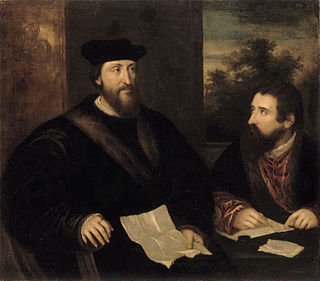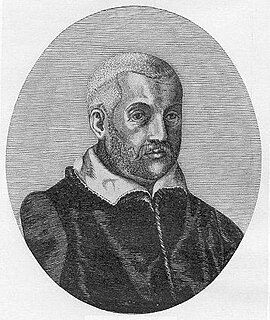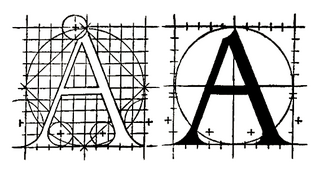 W
WGeorges d'Armagnac was a French humanist, patron of arts, Cardinal and diplomat deeply embroiled in the Italian Wars and in the French Wars of Religion.
 W
WEguinaire François, Baron de Kerlouan (1495–1550) was a French jurist. He is also variously referred to as Baro, Eguinaire Baron, Eguinarius Baro, Eguinarius Baron, Eguinar Baro or Eguin Baron.
 W
WFrançois Baudouin, also called Balduinus, was a French jurist, Christian controversialist and historian. Among the most colourful of the noted French humanists, he was respected by his contemporaries as a statesman and jurist, even as they frowned upon his perceived inconstancy in matters of faith: he was noted as a Calvinist who converted to Catholicism.
 W
WBarnabé Brisson was a French jurist and politician.
 W
WGuillaume Budé was a French scholar and humanist. He was involved in the founding of Collegium Trilingue, which later became the Collège de France. Budé was also the first keeper of the royal library at the Palace of Fontainebleau, which was later moved to Paris, where it became the Bibliothèque nationale de France. He was an ambassador to Rome and held several important judicial and civil administrative posts.
 W
WJean de Coras, also called Corasius (1515–1572) was a French jurist.
 W
WJacques Cujas was a French legal expert. He was prominent among the legal humanists or mos gallicus school, which sought to abandon the work of the medieval Commentators and concentrate on ascertaining the correct text and social context of the original works of Roman law.
 W
WHenri Estienne, also known as Henricus Stephanus, was a 16th-century French printer and classical scholar. He was the eldest son of Robert Estienne. He was instructed in Latin, Greek, and Hebrew by his father and would eventually take over the Estienne printing firm which his father owned in 1559 when his father died. His most well-known work was the Thesaurus graecae linguae, which was printed in five volumes. The basis of Greek lexicology, no thesaurus would rival that of Estienne's for three hundred years.
 W
WJacob Faber or Jakob Faber, also known as the "Master IF" from the monogram on his prints, was a formschneider ("block-cutter") of woodcuts and metalcuts, engraver, designer of decorative prints and publisher. Faber was active in the period 1516-1550, in Basel in Switzerland and subsequently in France.
 W
WRobert Gaguin was a noted French Renaissance humanist and philosopher; he was minister general of the Trinitarian Order.
 W
WPetrus Gyllius or Gillius (1490–1555) was a French natural scientist, topographer and translator.
 W
WTanneguy Le Fèvre was a French classical scholar. He wrote many books, and translated numerous classical works. Somewhat unusually in this era, he educated his daughter Anne Dacier in Greek and Latin, and she subsequently became the notable classical scholar and translator better known as Madame Dacier.
 W
WJacques Lefèvre d'Étaples was a French theologian and a leading figure in French humanism. He was a precursor of the Protestant movement in France. The "d'Étaples" was not part of his name as such, but used to distinguish him from Jacques Lefèvre of Deventer, a less significant contemporary, a friend and correspondent of Erasmus. Both are also sometimes called by the German version of their name, Jacob/Jakob Faber. He himself had a sometimes tense relationship with Erasmus, whose work on Biblical translation and in theology closely paralleled his own.
 W
WJean Papire Masson Latin: Papirius was a French humanist historian, known also as a geographer, biographer, literary critic and jurist.
 W
WMichel Eyquem de Montaigne, also known as Lord of Montaigne, was one of the most significant philosophers of the French Renaissance, known for popularizing the essay as a literary genre. His work is noted for its merging of casual anecdotes and autobiography with intellectual insight. His massive volume Essais contains some of the most influential essays ever written.
 W
WMuretus is the Latinized name of Marc Antoine Muret, a French humanist who was among the revivers of a Ciceronian Latin style and is among the usual candidates for the best Latin prose stylist of the Renaissance.
 W
WNicolas-Claude Fabri de Peiresc, often known simply as Peiresc, or by the Latin form of his name Peirescius, was a French astronomer, antiquary and savant, who maintained a wide correspondence with scientists, and was a successful organizer of scientific inquiry. His research included a determination of the difference in longitude of various locations in Europe, around the Mediterranean, and in North Africa.
 W
WJacques Pelletier du Mans, also spelled Peletier was a humanist, poet and mathematician of the French Renaissance.
 W
WChristophe Plantin was an influential French Renaissance humanist and book printer and publisher living and working in Antwerp.
 W
WLaurent de Premierfait was a Latin poet, a humanist and in the first rank of French language translators of the fifteenth century, during the time of the mad king Charles VI of France. To judge from the uses made of Du cas des nobles hommes et femmes in England, and the sheer number of surviving manuscripts of it, it was extremely popular in Western Europe throughout the fifteenth century. Laurent made two translations of the Boccaccio work, the second considerably more free. A large percentage of surviving manuscripts are carefully written and illuminated with illustrations.
 W
WPetrus Ramus was an influential French humanist, logician, and educational reformer. A Protestant convert, he was one of the most prominent victims of the St. Bartholomew's Day massacre.
 W
WGérard Roussel (1500–50) was a French cleric, a student of Jacques Lefèvre d'Étaples and later a member, with his former teacher, of the Circle of Meaux around Guillaume Briçonnet, bishop of Meaux. This group was characterized by evangelical sensibilities, but all the while remaining catholics, at a time when religious identities were unclear and a matter of dispute, due to the very recent Protestant Reformation. Gérard Roussel, along with Jacques Lefèvre d'Étaples, was studied by the historian Thierry Wanegffelen as being "between two pulpits", that of Rome and that of Geneva where Jean Calvin would settle permanently in 1541, and, more generally, between catholicism and Protestantism.
 W
WCharles de Sainte-Marthe (1512–1555) was a French Protestant and theologian.
 W
WOmer Talon was a French humanist, a close ally of Petrus Ramus. Biographical details are few; and there are some quite serious bibliographical difficulties in distinguishing Talon and Ramus as authors.
 W
WAndré Tiraqueau (1488–1558) was a French jurist and politician. He is known also as a patron of François Rabelais, and the character Trinquamelle in Gargantua and Pantagruel is traditionally identified with Tiraqueau.
 W
WGeoffroy Tory was born in Bourges around 1480 and died in Paris before 14 October 1533. He was a French humanist and an engraver, best known for adding accents on letters in French. His life's work has heavily influenced French publishing to this day.